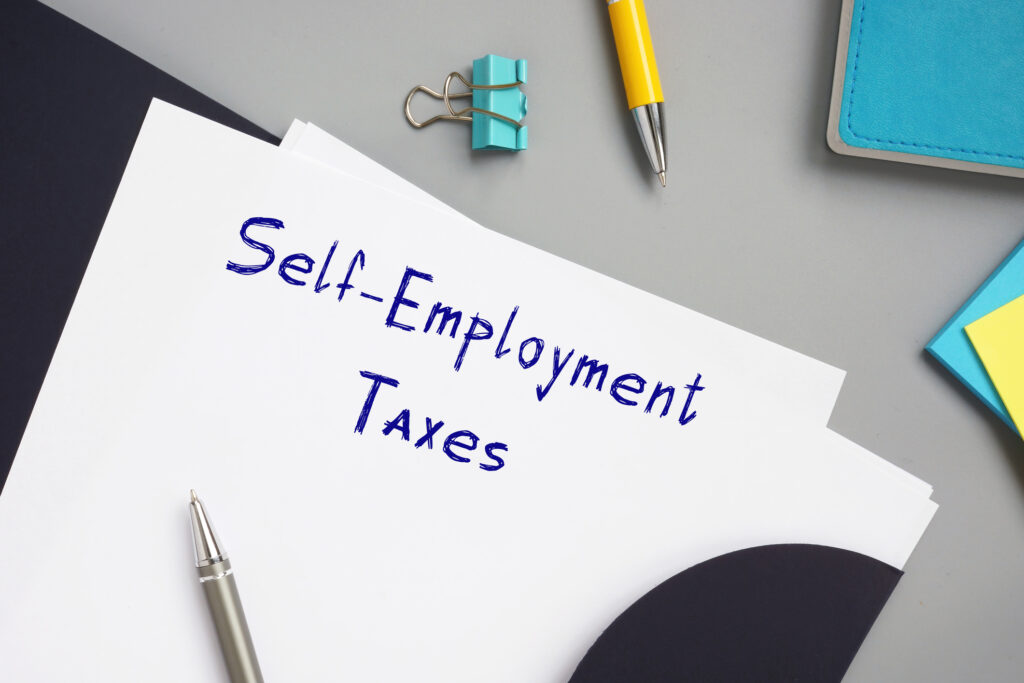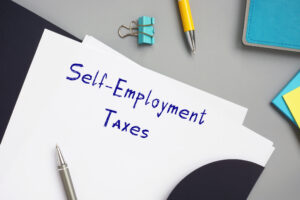If you’re self-employed, tax time can be confusing. Do you pay the same tax rate as an employee? What expenses can you deduct? When do you file? Can you get employment insurance? The following are some answers to the tax questions most frequently asked by the self-employed.
Do I qualify as self-employed?
According to the Canada Revenue Agency, a self-employed individual usually works independently. The worker does not have anyone overseeing their activities and is free to work when and for whom they choose. They may provide their services to different payers at the same time and can accept or refuse work from the payer. They typically use their own tools, space and equipment. The working relationship between the payer and the worker does not present a degree of continuity, loyalty, security, subordination, or integration, all of which are generally associated with an employer-employee relationship. The worker is responsible for paying provincial and/or federal sales taxes and may claim certain deductions as business expenses.
Examples of self-employed positions:
- Property and real estate managers
- Farmers and ranchers
- Brickmasons and blockmasons
- Food Service Managers
- Painters (construction and maintenance)
- Carpenters
- Lodging Managers
- Tile and Marble Setters
- Artists
- Massage therapists
- Financial advisers
- Freelance writers
- Independent business consultants
- Local handypersons
- Food truck owners
- Photographers
- Make-up artists
- Event planners
- Hairstylists
- Tutors
Do I need to charge GST/HST?
According to the Canada Revenue Agency (CRA), if you sell taxable goods or services in Canada and you are registered for a GST/HST account, you must charge your customers GST/HST for your province or territory. You must remit all net tax owing when you file your taxes. Be sure to keep records of the amount of GST/HST you’ve collected and how much you’ve paid on business expenses.
When do I file?
Self-employed individuals must file, like everyone, by April 30th.
Can I deduct my kids and/or spouse?
If they work for you, you can pay your significant other and/or kids. The money paid to them is tax-deductible, as long as the salary you’ve paid them is reasonable for the work they’ve done.
Can I get employment insurance?
To be eligible for EI, (including maternity, parental, sickness and compassionate care leave) you have to register.
How much should I set aside for taxes?
Set aside between 15 and 25 percent of your gross earnings to avoid the shock of an unmanageable tax bill at the end of the year.
What deductions can I claim?
Self-employed workers can take advantage of more write-offs than employees bringing home a T4. They can claim:
- Operating expenses (rental on space, office supplies, repairs, maintenance, inventory, payroll, utilities, professional fees)
- Home office expenses: If you run your business from your home and use the space for the majority of your activities, then you can deduct a fraction of the cost of your home rent for the tax period.
- Meals and entertainment costs associated with a self-employed business are eligible for tax write-offs as sanctioned by the CRA. These costs must be incurred in the company’s name (client dinners, employee lunches, etc.) and only 50% of the total cost of the meals and entertainment can be written off. You’ll need to show evidence that the food or entertainment costs were reasonably and appropriately used for your business. A guide to claiming meals and entertainment can be found on the CRA site.
- Travel: The CRA allows tax write-offs for self-employed persons who travel outside their usual area of business for work-related reasons (meet a client, pick up inventory, attend a professional conference).
- Vehicle expenses: Personal vehicle use is not eligible for any type of write-off, but a fraction of such costs can be written-off if you drive your car for work-related reasons. You’ll need to track your mileage. If a vehicle is only used for business purposes, then almost all costs associated with its running are eligible for deductions (gas, mileage, repairs, maintenance, insurance, oil changes).
- Advertising/marketing: A part of your advertising and marketing costs can be deducted.
- Websites and software: The CRA dictates that certain costs associated with your business website are tax-deductible (software/website development, cost of products, contractor fees for installation and/or technical help).
- Bad debt refers to money owed to you by others that cannot be paid back. It’s uncollectible revenue and it is considered a business expense. In order for bad debt to be expensed and written-off, you must have done one of two things: establish that an account receivable is a bad debt expense within the specific tax year and/or include the bad debt in your receivable income. Then you are able to claim bad debt under business expenses using the T2125 form.
- Private health service premiums: If you pay for a private health plan each year, then the premiums you pay on that plan are tax-deductible.
- Industry/professional fees: The expenses associated with professional certification required to work in your industry are eligible for write-offs (licenses, certifications, dues and requirements).
- Professional development and educational expenses: Further learning and professional development can be deducted from your personal returns.
- Interest and bank charges attached to your business accounts can be written off. There are strict limits on the interest you can deduct depending on what the loan was for.
The Canada Revenue Agency states that business income is income from any activity you carry out for profit. If you’re self-employed, you likely earn income from a business that you operate either as a sole proprietor or with someone else as your partner. It could include income from a business, profession, commission sales, farming, or fishing activities. You’ll need to file your taxes in a very specific way in order to meet CRA requirements.
Need advice and/or assistance filing your self-employed tax return? Need help determining tax deductions for your home office? Contact Cook and Company Chartered Professional Accountants. We are based out of Calgary, Alberta, serving clients across Canada and the United States. We provide high-quality tax, assurance, financial and succession planning services for a wide variety of privately-owned and managed companies. Contact us for a complimentary consultation.



